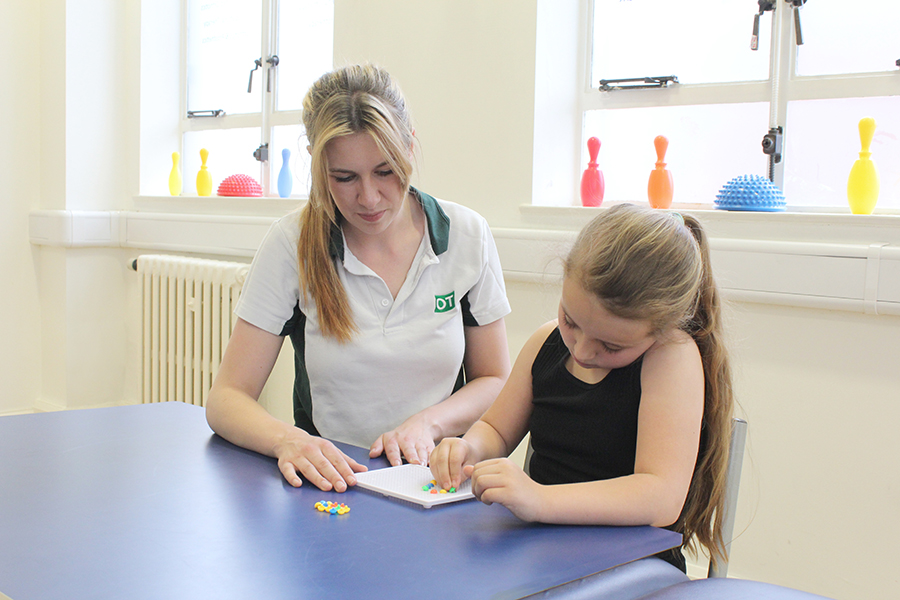Speech pathology, also known as speech-language pathology, is a vital field dedicated to assessing, diagnosing, treating, and preventing speech, language, voice, and swallowing disorders. It plays a crucial role in enhancing communication and quality of life for individuals across all age groups.
This comprehensive guide will delve into the world of speech pathology Adelaide, exploring its significance, common disorders, treatment approaches, and the impact it has on patients’ lives.

What is Speech Pathology?
Speech pathology is a specialised area of healthcare focused on addressing communication and swallowing difficulties. Speech-language pathologists (SLPs), or speech therapists, are highly trained professionals who work with individuals to improve their ability to communicate effectively. This field encompasses a wide range of disorders, including:
- Speech Disorders: Problems with articulation, fluency, and voice. This includes stuttering, apraxia, and dysarthria.
- Language Disorders: Difficulties in understanding or using language, which can affect both spoken and written forms.
- Voice Disorders: Issues with pitch, volume, or quality of the voice that can hinder communication.
- Swallowing Disorders (Dysphagia): Problems with swallowing safely and efficiently, which can occur due to various medical conditions.
The Importance of Speech Pathology
Effective communication is fundamental to daily life, impacting education, employment, and social interactions. Speech pathology addresses issues that can hinder communication, enabling individuals to express themselves, understand others, and participate fully in society. Here are some key areas where speech pathology makes a significant difference:
Early Childhood Development
Speech and language development in early childhood is crucial for future academic and social success. SLPs NDIS speech pathology Adelaide work with young children to identify and address developmental delays, ensuring they acquire essential communication skills. Early intervention can prevent or mitigate long-term difficulties, providing children with a strong foundation for learning and interacting with their peers.
Academic Performance
Speech and language disorders can significantly affect a child’s academic performance. SLPs collaborate with teachers and parents to develop individualised education plans (IEPs) for students with communication challenges. By providing targeted speech pathology Adelaide interventions, speech therapists help students improve their language skills, comprehension, and ability to engage in classroom activities.
Social and Emotional Well-being
Communication difficulties can lead to social isolation, low self-esteem, and anxiety. Speech pathology interventions enhance individuals’ ability to interact confidently with others, fostering positive relationships and improving overall emotional well-being. SLPs often work with individuals to develop social communication skills, such as initiating conversations, understanding non-verbal cues, and taking turns in discussions.
Rehabilitation and Medical Conditions
Speech kids speech pathology Adelaide pathologists play a crucial role in the rehabilitation of individuals recovering from medical conditions such as stroke, traumatic brain injury, or degenerative diseases like Parkinson’s. They provide therapies to regain lost speech and language abilities, improve cognitive communication skills, and address swallowing disorders, enhancing patients’ quality of life.
Common Disorders Treated by Speech Pathologists
Speech pathologists address a wide range of disorders, each requiring tailored interventions. Some common conditions include:
Articulation Disorders
Articulation disorders involve difficulties in producing sounds correctly. Individuals may substitute, omit, or distort sounds, making their speech unclear. Speech therapy focuses on teaching proper sound production and improving intelligibility.
Language Disorders
Language disorders affect an individual’s ability to understand and use language. This can manifest as difficulty following directions, forming sentences, or finding the right words. SLPs use various techniques to enhance vocabulary, grammar, and comprehension skills.
Stuttering
Stuttering is a fluency disorder characterised by interruptions in the flow of speech, such as repetitions, prolongations, or blocks. Speech pathologists employ techniques like controlled fluency and desensitisation to help individuals manage stuttering and communicate more smoothly.
Voice Disorders
Voice disorders involve issues with pitch, volume, or quality of the voice. These can result from vocal misuse, medical conditions, or psychological NDIS speech pathology Adelaide factors. SLPs work on vocal exercises, breathing techniques, and proper voice usage to improve vocal health.
Dysphagia
Dysphagia refers to swallowing difficulties, often seen in individuals with neurological conditions, head and neck cancers, or after surgeries. Speech pathologists assess swallowing function and provide strategies to ensure safe and efficient swallowing, reducing the risk of aspiration and improving nutritional intake.
Treatment Approaches in Speech Pathology
Speech pathologists use evidence-based practices and individualised treatment plans to address communication and swallowing disorders. Common approaches include:
Speech Therapy
Speech therapy involves exercises and activities designed to improve specific speech and language skills. These may include articulation drills, language comprehension tasks, and fluency-building techniques.
Augmentative and Alternative Communication (AAC)
For individuals with severe communication disorders, AAC systems such as communication boards, speech-generating devices, or mobile apps can facilitate effective communication.
Voice Therapy
Voice therapy focuses on improving vocal function through exercises that enhance vocal quality, pitch, and volume. Techniques include breath control, resonance training, and vocal hygiene education.
Swallowing Therapy
Swallowing therapy aims to improve the safety and efficiency of swallowing. This may involve exercises to strengthen swallowing muscles, dietary modifications, and techniques to facilitate safe swallowing.
The Impact of Speech Pathology
Speech pathology has a profound impact on individuals’ lives, enabling them to communicate effectively, participate in social activities, and achieve their full potential. Through early intervention, academic support, and rehabilitation, speech pathologists empower individuals to overcome communication barriers and lead fulfilling lives.
Summing Up
Pathology is a vital field that addresses a wide range of communication and swallowing disorders. With the expertise of speech-language pathologists, individuals of all ages can improve their communication skills, enhance their quality of life, and achieve their personal and academic goals.
Whether it’s helping a child articulate their first words or aiding an adult in regaining their speech after a stroke, speech pathology Adelaide plays an essential role in fostering effective communication and overall well-being.



